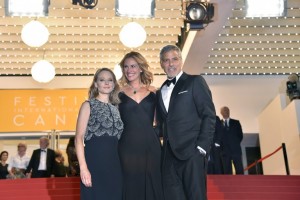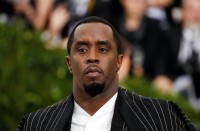
by Fran Blandy and Deborah Cole
CANNES, France (AFP) — Jodie Foster, who presented her first mainstream film as a director in Cannes Thursday, said many studio bosses still dismissed female filmmakers as “too great a risk to take”.
The two-time Oscar-winning actress, who began her career at the age of three and is one of a handful of females in Hollywood to carve out a successful directing career, highlighted the challenges women face.
Foster noted “drastic changes” on film sets from her years as a child actor, when the only women on set were the make-up artists and the person playing her mother.
But “the one arena where it hasn’t really changed at all is directing for mainstream studio movies,” she observed.
Foster, 53, said the turbulent economy and changing technologies had left studio bosses more risk-averse than ever.
“I think studio executives are scared, period, (and) for some reason women are lumped into that category of ‘too great a risk to take’.”
However Foster, who won Oscars for her roles in “Silence of the Lambs” and “The Accused”, admits that having grown up in the industry, it was easier for her to become part of the boy’s club.
But even as she encouraged other women to take a seat in the director’s chair, the star of her first big-budget genre movie “Money Monster”, Julia Roberts, admitted she was not cut out for it.
“I consider it hugely complimentary that people ask me if I want to be a director. But I do not,” Roberts told reporters.
“Because I know my intellectual limitations and I know the limitations of my patience and I can’t have more than four people in an hour ask me a question that needs an answer,” said the married mother of three, drawing a laugh.
– Not ‘some big plot’ –
Roberts, 48, said taking the helm of a film was “something like playing the cello or painting that I envy and hope in another lifetime I might be drawn to”.
“But I think in this life I just want to admire it from a small distance and be glad when my capabilities come into the orbit of a director that I just live to serve and impress,” she said with a smile for Foster.
In the United States, only nine percent of directors are women, according to a 2016 study from the University of San Diego.
Another study released this month by the European Women’s Audiovisual Network found that only one film in five in Europe was made by a female director.
Foster has directed several movies, as well as episodes of television series “Orange is the New Black” and “House of Cards”.
She said she did not think there was “some big plot” by men trying to put women down in the film business, but it was more about being stuck in traditional models.
Foster described the difficulty in placing trust in a first-time director, and placing the vision of a multi-million-dollar film in their hands.
– Half of the human race –
“I was once in a movie where a director — who was a really smart guy — spent the entire movie in his bathroom calling his wife.
“You’re looking for the best bet and it is hard to look at a face that is 100 percent different to yours and that you carry traditional perceptions about and you worry you are going to make a bad choice.”
Foster was asked about the perception that audiences don’t want to see movies about women.
“I don’t know who those people are. I want to look at human lives. I don’t know anyone who would be disinterested in half of the human race.”
Foster said she was able to see herself in all of her characters, even the men, something that was harder for male directors to do.
“One of my biggest pet peeves as an actor, whenever a male writer was searching for motivation for a woman they would always just go to rape. It was ridiculous.”
fb-dlc/fg/txw
© 1994-2016 Agence France-Presse







